In 2019, I traveled hundreds of miles along the very porous border between China and North Korean to see what life is like for most North Koreans.
Here is the reality of rural living conditions for most in North Korea:
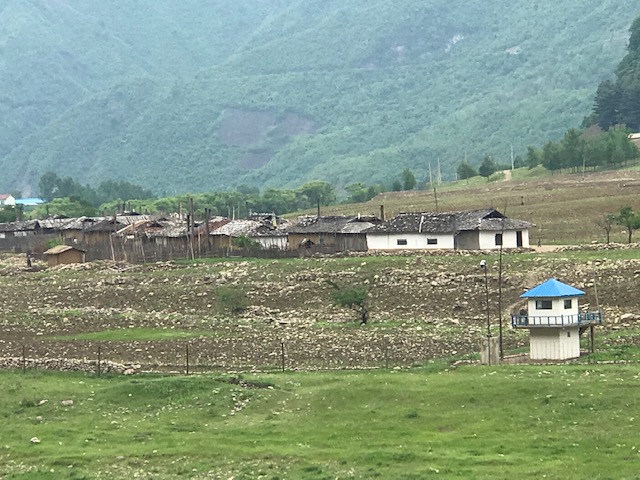

“Officially”, I crossed the de facto demarkation line between North and South Korea at the DMZ in 2019, during my visit to the JSA.
While many people visit the DMZ, a trip to the Joint Service Agreement (JSA) is very different. First, you’re required submit your passport for approval. Second, a tour of this area requires special clearance and the JSA is not open to tourists from all countries.
Third, you must sign a document acknowledging the perils traveling to this area as this is often a flash point location where hostilities between the two Koreas and allies have played out, as North Korean and UN soldiers have joint access to the building.
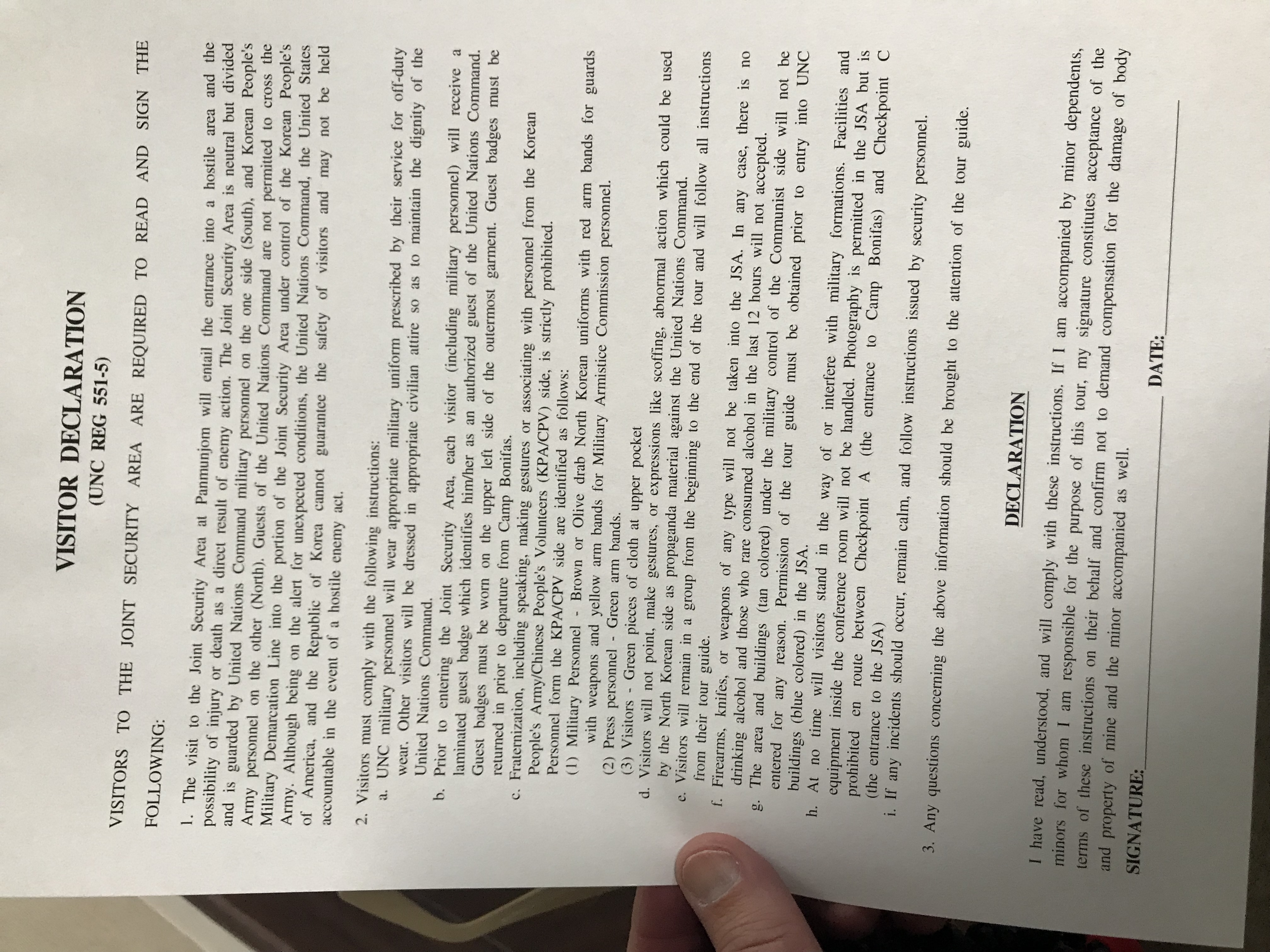
Trips to the JSA are intermittent and occur when diplomatic conditions between the countries are good/tolerable, such as when the two Korean leaders met here.
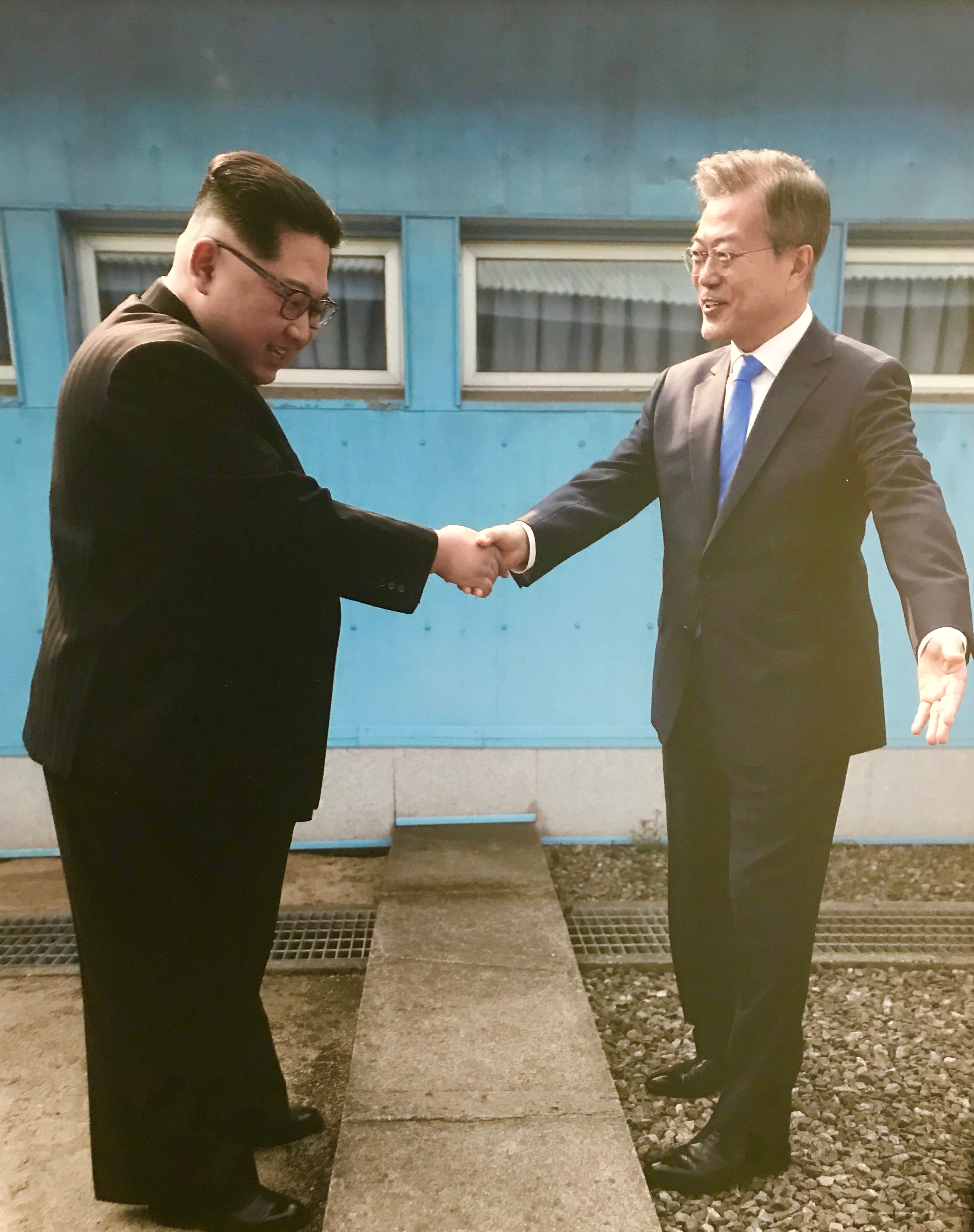
The demarkation line between the two Koreas is in the center of the blue building known as the JSA (the concrete line in the picture above). Outside of the blue JSA building, the meta data on my phone showed me in Gyeonggi-do, South Korea, however when I crossed the center line within the JSA building the meta data showed my location in North Korea.
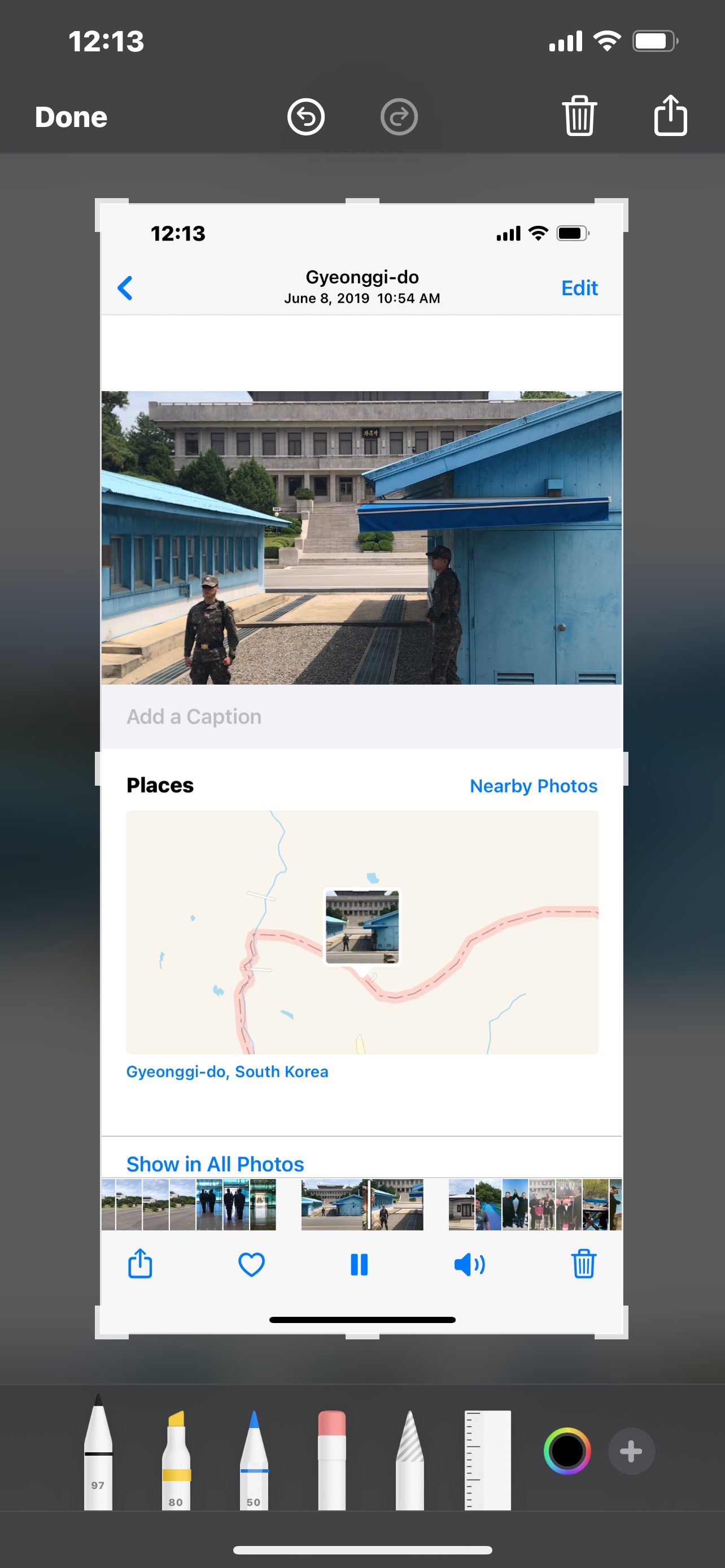

The U.N. soldiers leading our small group welcomed our small group to North Korea when crossing the centerline inside the JSA. Read what a NY Times reporter who visited the JSA said in this article and what another NY Times reporter said in this article.
DMZ funny story:
I had seen Conan O’Brien do a video on the NK side of the JSA (this is a riotously funny video, please watch it), sitting down at the table near the door. Thinking it was no big deal to do the same as Conan had done … when the UN guard saw me seated there and filming … he freaked out, harshly reprimanded me and demanding I move. He said that at any moment NK guards could enter the door and take me hostage. I re-grouped … and began shooting my video. You can see the door behind me and the table at the demarkation table center line.
More On Traveling The Porous Border Between China & the DPRK
I had planned to run a marathon through downtown Pyongyang. The reality is most North Koreans will never visit this North Korea capital, a city reserved for the country’s 10,000 or so elites. Most of the 25 million people living in North Korean work on cooperative or state run farms well outside of the city. Most of North Korea is rural, and life for most people, day-to-day, adults spend their days toiling in the fields, while their children go to state-run schools. At the end of the year, if there is a crop surplus, the cooperative will grant each worker a proportionate share, however due to drought and famine; there haven’t been many bonuses of late. North Koreans survive on limited amounts of food, allocated by government rationing. Each family may receive a small plot of land, an acre or so from the government, which they can farm after their official duties are complete. For most North Koreans, they live in housing provided by the government, which have neither electricity nor indoor plumbing. However, families are tight-knit in North Korea, with extended families living with one another. A patriarchal culture, the father is the unquestioned leader and dominant figure of each family, and the eldest son also commands significant respect.
The North Korean-Chinese border, established by the Yalu River, is at many points along the border VERY narrow and amorphous. North Koreans are regularly seen washing clothes, fishing, tending livestock and swimming in the river. In 2019, as we navigated the river along the Yalu, the meta data on my phone again showed me in NK. We were feet away from shore, seeing the faces of North Koreans doing their laundry or piloting a boat down the river.
Any North Korean physically wanting to go from NK to China could easily do so. However, physically getting into China is not the issue. There are many other barriers stopping North Koreans from entering China. Let me explain: For North Koreans, home is home, and as there is no freedom of the press, many in the DPRK do not long to live in China. However, if they decided to do so, and made it across the Yalu River into China (or paid an arranger to get them across), they likely would have difficulty speaking Chinese. This language barrier would likely get them reported to Chinese authorities, who would in turn alert North Korean authorities. They would be sent back and remanded in a DPRK prison camp, and their families would likely also be interrogated or detained.
However, assuming they escaped detection, culturally speaking, the they would be looked down upon by the Chinese people, regarded as “lower class”, which would make developing friendships and getting a job very difficult. Isolated and unemployed, they would risk being sold into prostitution in China. However, if they happened to make it all the way to South Korea, where they would also be shunned, they would struggle to survive in this uber-competitive and fast-paced society.
What Is It Like To Interact With A North Korean?
Everyday North Koreans are very hesitant to allow people to take their pictures. Why? There is little upside to allowing people to do so. If their picture appeared in a blog or newspaper article, they would risk being asked by an officious government bureaucrat why they were so hospitable with a Westerner. Were they a western sympathizer? Being accused of such a heinous crime would result in them and their family being put on a watch list.
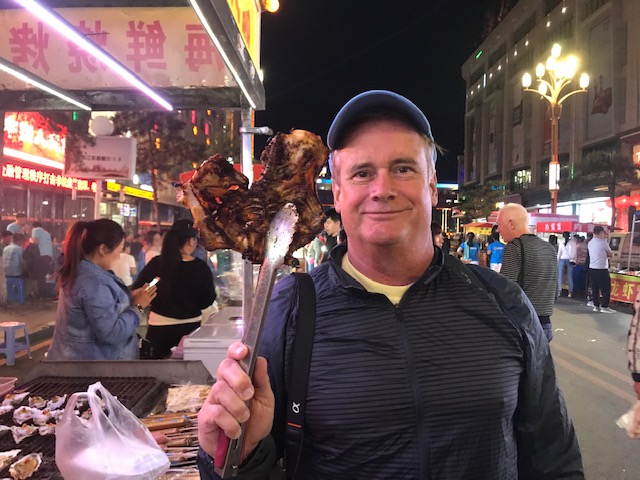
History of Korean Conflict:
While growing up, the Korean War was not a subject that I learned much about in my history classes, instead learning a lot about Vietnam … and yet it’s THIS conflict that dominates our headlines and impacts so much of our foreign policy attention.
So, let here’s some background on this conflict.
Prior to World War 2, actually from 1910 until the end of World War 2 in 1945, all of Korea was ruled by the Japanese. This was a very poor area with most people surviving on subsistence farming. World War 2 ends, the Japanese are defeated, and this region becomes a battle ground, a proxy war … for competing ideologies: Communism vs. Democracy.
In 1945, the Soviets declare war against Japan … and they send troops to Korea … and the US becomes very concerned that the Soviets will occupy all of Korea, and then all of Asia. Therefore, the US proposes to the Soviets that they take Northern Korea and the US takes Southern Korea, with the dividing line being the 38th parallel, along this 38th parallel. In September of 1948, the Democratic People’s Republic of Korea (the DPRK) is formed and the Soviets install Kim il-Sung as the Premier, who decides he wants to “re-unify” the Korean peninsula. He goes to China for support and gets it, and then to the USSR, who agrees, and North Korean troops invade South Korea.
In June of 1950, and Kim Il-Sung’s North Korean army, equipped with Soviet tanks, quickly overruns the 38th parallel and enters South Korea, and the United States comes to their aid. The US gets involved after watching most of Eastern Europe and then China become Communist after WWII, and the U.S. did NOT want to appear soft on Communism. Ferocious battles ensued. And at first … the North Koreans had the upper hand, pushing their way to Seoul, South Korea. However, it’s at that point that General Douglas Macarthur, who had led the fight in World War 2, took command. He recaptured Seoul and actually advanced well into North Korea. And that is when China sent troops to fight against the American and UN troops.
So, Why did China get involved? Because they were afraid that the US, if they became too powerful and won this war decisively, would eventually invade China. So, the war went back and forth … a stalemate ensued …for the next two years, with lots of bombing going on. And, as a result of this bombing, the North Koreans built schools, hospitals, factories and all of their military operation centers underground. Think about their nuclear testing facilities today.
Finally, an armistice was agreed to and signed in July of 1953, essentially returning Korea to a divided status along the 38th parallel, the same as before the war had started. Yes, historians call the war a stalemate. But what resulted was a country was formed, the DPRK, whose sole … their ENTIRE existence … was to be anti-American, which also justified North Korea’s totalitarian regime.
Impact of Sanctions on North Korea
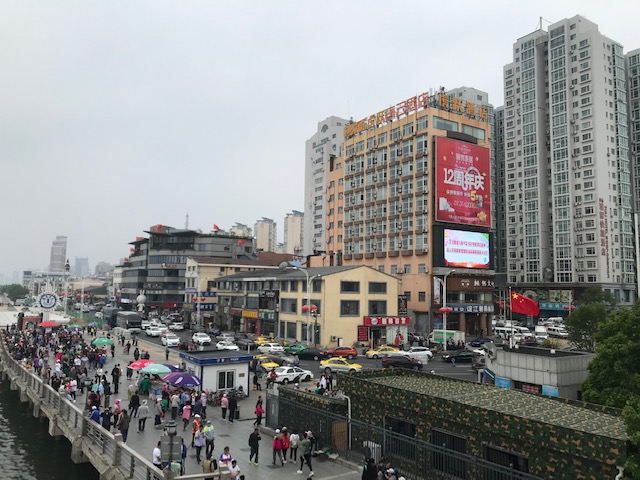
Everyone has heard so much about the stifling and crippling US and UN sanctions on North Korea, and it is through Dandong and across the Friendship bridge where 80% of the food…supplies… building materials, and technology comes into North Korea. Empty trucks line up on the North Korean border in the morning, awaiting their turn to cross the Friendship bridge into China. Later in the afternoon, those same trucks stream back into North Korea, laden with supplies and materials. Also, trains regularly cross the friendship bridge and cargo ships make the short trip across the Yalu River.The China-North Korea Friendship Bridge across the Yalu River connecting Dandong, China and Sinuiju, North Korea is one of the largest borders connecting China and North Korea. Between 1950 and 1951 the broken bridge was repeatedly attacked by American planes during the Korean War to stop the supplies and troops sent from China into North Korea, and the Friendship Bridge was built just after the war.
The broken bridge was repeatedly bombed by US and UN troops at its center, in the middle of the river. The broken bridge was never repaired, so the North Koreans today use it as a reminder … showing the damage and aggression caused by the imperialist Americans.
Foreign Capital & North Korean Restaurants
With the U.S. and U.N. sanctions in place, North Korea struggles with having enough foreign currency on hand to pay its international obligations. So, how does it get foreign currency? It skirts the sanctions by laundering money in China, through its network of North Korean restaurants, many in China.
There are ~ 100 North Korean restaurants, many of which operate in China. They hire young, talented North Korean girls from surrounding cities, who are essentially indentured servants. The girls work from 6am until midnight, six days a week, performing every task needed to operate the restaurant. In the early morning they start by cleaning the restaurant top to bottom, they will prepare the food during the day, act as hostesses and waitresses, and then sing, dance and play instruments to North Korean folk songs. The girls performing these jobs are paid paltry wages, and may not leave the restaurant premises, where they also live and eat their meals. They are forbidden to leave the restaurant and walk the streets in China alone.
While these restaurants are not in themselves profitable, their operation inside other countries allows the North Korean government access to banking institutions to launder money that would otherwise get detected by Chinese banking authorities and U.N. and U.S. sanction watchdogs.
It has also been alleged that these restaurants are where the North Korean government traffics in drugs to raise foreign currency, and serve as a gathering point for DPRK intelligence officials meet.
What Happened After the Korean War?
Kim Il-sung’s leadership style was predicated on Stalinism as he revered Stalin, however, in place of Marxism-Leninism, he established the practice of Juche, which was based on agricultural independence and in general … a lack of dependency on anything or anyone. And while Juche was criticized by many allowing totalitarian rule in North Korea, it was important, because the Soviets and Chinese weren’t always reliable partners for the DPRK.
The North Koreans are hard-core survivors, and wily negotiators.
In fact, they have played US Presidents since US president Jimmy Carter made a visit to Pyongyang in1994 in which he met with Kim Il-sung regarding North Korea’s quest for nuclear weapons and returned proclaiming that he had resolved the crisis.
However, 12 years later … in 2006 …Kim Jong-il and North Korea announced that they had successfully detonated a nuclear bomb underground and tested an ICBM that could reach the U.S.
And in 2007, North Korea signed an agreement stipulating they would shut down their nuclear reactors in exchange for economic assistance, however they continued their nuclear testing programs, perfecting their ICBM technologies in underground facilities.
It’s good that Trump and Kim Jong-un are talking but based on the practice of Juche, the lack of dependency on anything or anyone, it seems unlikely that the DPRK will give up their nukes.
So, what is needed is a shift in policy. The world doesn’t seem to mind that Pakistan has nuclear weapons, to defend themselves from their rivals, and they’re going to get used to a nuclear North Korea.
But, what if NK agreed to limit the size of its nuclear arsenal, stop making additional weapons, stopped its threatening actions and rhetoric, agreed not to export ANY weapon technologies to other rogue regimes, and was open to international inspections … and in return for all international sanctions being lifted?
That could potentially work, however it may not because you need to understand that North Korea’s entire existence … its identity … it’s raison d’etre … is predicated on being anti-US.
If talks don’t work, I think the US will be content to play the long game … one of containment, imposing sanctions indefinitely on North Korea as the US has done in Cuba, to slowly bleed and further isolate the DPRK .. #1 ) to limit their capacity to export nuclear weapons to other countries and #2) hoping that the DPRK will implode, ushering in a new and less despotic regime.
Juche
Kim Il-sung leadership style was predicated on Stalinism as he revered Stalin, and, in place of Marxism-Leninism, he established the practice of Juche, which was based on agricultural independence and in general … a lack of dependency on anything or anyone. It is fascinating that while the world sees them as backwards, North Koreans see themselves, in an ethno-nationalist fashion, as “The Cleanest Race” on the Peninsula. And while Juche was criticized by many for justifying totalitarian rule in North Korea, it is important to understand, because these people are hard-core survivors, and very wily negotiators. In many villages across North Korea, there are Juche Towers, reminding and espousing the practice of self-sufficiency.
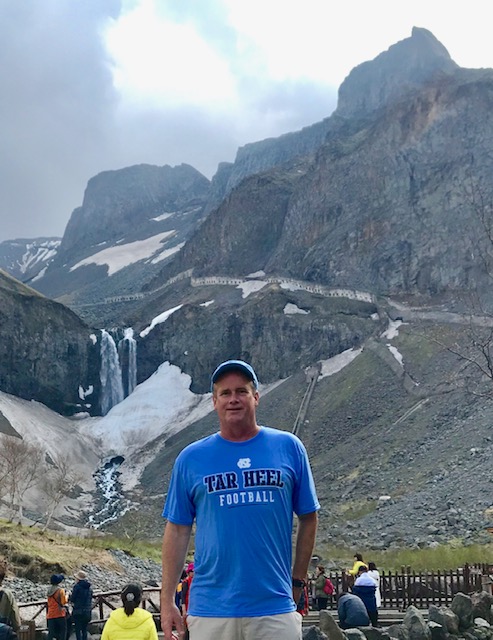
Badges Are a BIG deal in North Korea.
When a boy becomes a teenager, he is given a badge with the images of Kim il-sung and Kim jung-Il. He is expected to wear this pin for the rest of his life. And, don’t lose your pin! If a man isn’t wearing his pin in public, this raises eyebrows, seen as disloyal to the party.
Countries Similar to North Korea:
I would regard Iran or Cuba as the two countries most similar to North Korea. Both have ruling parties that espouse fundamentalist beliefs and rule with an iron fist. Iran’s leaders closely monitor their citizens, and block most social media accounts. Iran exports its radical Shia beliefs to other countries, frequently meddles in other countries affairs, and seeks to develop and proliferate nuclear weapons. Cuba, like Iran and North Korea, is virulently anti-American. Like North Korea, this country’s ideological existence is predicated on making the United States the focus of its struggles. Ideological billboards of the “Continued Struggle” dot Cuba’s highways, reminding passersby not to give up the fight … 80 years later!
North Korea’s and Cuba’s planned economies are synonymous with their political systems – they are the reason for their existence. North Korea’s economy, like the USSR’s, was an alternative to capitalist nations. For Lenin and Castro, their socialist economies defined them, and justified their totalitarian rule.
However, when the Soviet Union collapsed in the 1990s, North Korea struggled then, and even today has difficulty feeding its 25 million citizens. It’s unlikely that Kim Jung-un will pivot to a Chinese-Capitalist model as the Chinese and Vietnamese have done,
Because doing so will open up to people questioning Kim’s totalitarian practices and isolationistic policies.
Mount Paektu

The beautiful Mt. Paektu and Heaven Lake, a crater lake on the border between China and North Korea was formed by a major volcanic eruption in the year 1597. Heaven Lake is crescent shaped and melted snow is its water source. The scenery is breathtaking, and this is an area that is very important culturally for most Koreans.
During the Korean summit, Kim Jong-un and Moon Jae-in visited Heaven Lake and the South Korean leader filled a bottle with some water from Heaven Lake to take back to South Korea because mytholgically speaking this an important place for Koreans.For North Koreans, this is also a very important place as Kim Jong-un’s father Kim Jong-il was born here. However, he wasn’t! Let me explain: While growing up, the Kim family were surrounded by Christians and Christianity, and as a leader what better way to foster loyalty and adulation by his countrymen than by copying … essential Christian tenets. So, you know that Jesus was born in Bethlehem and … Kim jong il, despite being born in Russia, by legend was born in Mount Paektku. And when Jesus was born …a star was in the sky and … when Kim was born a double rainbow appeared overhead, and for North Koreans this is heaven, where your soul returns.
